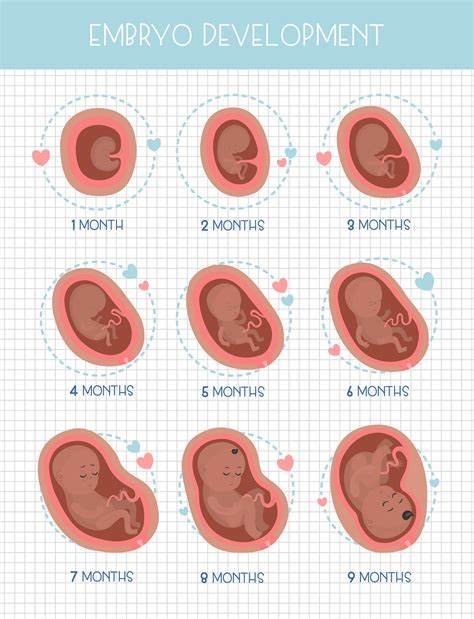
Top 10 Pregnancy Myths Debunked
Balancing Digital Leisure with Prenatal Wellness
Pregnancy often brings a heightened focus on physical and emotional well-being—but relaxation is just as essential. While some expectant parents turn to reading or guided meditation, others enjoy light digital entertainment in moderation. Platforms like Australian online casinos offer casual, engaging diversions that, when used responsibly, can be part of a well-balanced routine. As with all digital activities, mindfulness and moderation are key.
Pregnancy is a time filled with excitement, anticipation, and often, a lot of advice—from family, friends, and even strangers. However, not all of this advice is accurate. Pregnancy myths have been passed down through generations, and while some may seem harmless, others can be misleading or even harmful. In this article, we’ll debunk the top 10 pregnancy myths and provide you with the truth, so you can make informed decisions and enjoy your pregnancy with confidence.

Myth: You’re Eating for Two
Debunked:
While it’s true that you need extra nutrients during pregnancy, you don’t need to double your calorie intake. The idea that you need to eat for two is one of the most persistent myths. In reality, your body only requires about 300 extra calories per day in the second and third trimesters—roughly the equivalent of a small snack like a yogurt or an apple.
The Truth:
The quality of your food is much more important than the quantity. Focus on eating nutrient-dense foods that provide vitamins, minerals, protein, and healthy fats to support both your health and your baby’s development.
Myth: You Can’t Exercise During Pregnancy
Debunked:
Many people believe that exercise is dangerous during pregnancy, but this is simply not true for most women with uncomplicated pregnancies. In fact, staying active can help reduce pregnancy discomforts like back pain and improve circulation.
The Truth:
Unless your doctor advises against it, exercise is generally safe and beneficial during pregnancy. Activities like walking, swimming, and prenatal yoga can boost your energy levels, improve sleep, and reduce stress. Just make sure to avoid high-risk activities and listen to your body.
Myth: Heartburn Means Your Baby Will Have a Lot of Hair
Debunked:
This old wives’ tale suggests that if you experience heartburn during pregnancy, your baby will be born with a full head of hair. While it’s true that pregnancy hormones can cause acid reflux, there is no scientific evidence linking heartburn to hair growth.
The Truth:
Heartburn is common due to hormonal changes that relax the valve between your stomach and esophagus. This allows stomach acid to flow back up, causing the uncomfortable burning sensation. Your baby’s hair growth is determined by genetics, not your heartburn.
Myth: You Can’t Travel During Pregnancy
Debunked:
Traveling during pregnancy is generally safe, especially during the second trimester when you are typically past the morning sickness stage but still have enough energy.
The Truth:
For most women, traveling during pregnancy (especially by car or plane) is perfectly fine up to around 36 weeks, assuming there are no complications. However, it’s a good idea to check with your doctor, particularly if you have a high-risk pregnancy. Always make sure to stay hydrated, move around frequently, and avoid long periods of sitting still.
Myth: You Should Avoid Sex During Pregnancy
Debunked:
It’s common to hear that sex during pregnancy should be avoided, but this is only true in certain high-risk cases. In a healthy pregnancy, sexual activity is generally safe.
The Truth:
Unless you have specific complications like placenta previa, preterm labor risk, or an incompetent cervix, sex during pregnancy is typically safe. However, you might need to adjust positions as your belly grows to stay comfortable. If you have concerns, consult your healthcare provider.
Myth: Cravings Are an Indicator of What Your Baby Needs
Debunked:
Pregnancy cravings are real, but they don’t necessarily reflect what your baby needs nutritionally. The exact cause of cravings is unclear, but it’s thought to be related to hormonal changes, emotional triggers, and even a shift in taste preferences.
The Truth:
While cravings might seem intense, they are often more about what your body or emotions are drawn to, rather than a sign of specific nutritional deficiencies. It’s important to maintain a balanced diet, even if you’re craving certain foods, to ensure both you and your baby get all the nutrients you need.
Conclusion
Pregnancy is a time filled with both joy and uncertainty. It’s easy to get caught up in myths and misconceptions, but understanding the truth behind these myths can help you navigate your pregnancy with confidence and peace of mind. Always remember, if you have any concerns or questions, consult your healthcare provider for personalized advice.
Don’t let outdated myths dictate your experience—trust in your body, seek reliable information, and enjoy this special time in your life!







